Hello!
Welcome to the 4th in our extended shownotes series on the UK Constitution. Ever wondered how the legal system actually works across the UK? It's not as simple as one big system! The UK has three distinct judicial jurisdictions – England and Wales, Scotland, and Northern Ireland – each with its own courts and traditions. Understanding these differences and how they connect is crucial for grasping the full picture of law and justice in the UK today.
Sharpen your political punditry skills by never missing extended shownotes from The Bench Report. You'll be a guest on ‘Newsnight’ in no time.
A Journey Through the UK's Legal Systems
The UK's legal framework is built upon three separate judicial jurisdictions: England and Wales, Scotland, and Northern Ireland. This reflects the UK's unique history and the preservation of distinct legal traditions.
For England and Wales, the Senior Courts of England and Wales form the core of the superior courts, established by the Senior Courts Act 1981. These include the Court of Appeal (with separate divisions for criminal and civil cases), the High Court of Justice (comprising the Chancery, King’s Bench, and Family Divisions), and the Crown Court, which handles serious criminal matters. Below these are the county courts and magistrates’ courts, where all criminal cases commence . Additionally, there are specialist courts like Coroners’ Courts, which investigate sudden or unnatural deaths . The head of the judiciary in England and Wales is the Lady or Lord Chief Justice of England and Wales. Judges in this jurisdiction have immunity from proceedings for their actions and words spoken in their judicial capacity. Their independence is a fundamental constitutional principle, protected by law, requiring respect from the Lord Chancellor, other Ministers, and those involved in administering justice . Judicial appointments are based on merit, overseen by the Judicial Appointments Commission, which recommends candidates to the Lord Chancellor, with senior judges appointed by the King on the Lord Chancellor's recommendation .
Scotland maintains its own distinct legal system, a continuation from before the 1707 union with England . The Court of Session is Scotland’s highest civil court and the sole court capable of handling applications for judicial review . It is divided into an Inner House (mainly for appeals) and an Outer House . The High Court of Justiciary serves as Scotland’s highest criminal court, acting as both a trial and appellate court . The Lord President of the Court of Session also holds the title of Lord Justice General, presiding over the High Court . Below these superior courts are the sheriff courts and justice of the peace courts . Judges in Scotland benefit from absolute immunity from civil liability for actions taken within their judicial roles . The Judiciary and Courts (Scotland) Act 2008 mandates that the First Minister, the Lord Advocate, Scottish Ministers, MSPs, and others involved in justice administration must uphold the independence of the judiciary . Judicial appointments in Scotland are made based on merit by the Judicial Appointments Board for Scotland . Most senior judges are appointed by the King, following a process that considers the recommendations of a panel to the First Minister .
In Northern Ireland, the structure of the superior courts is defined by the Judicature (Northern Ireland) Act 1978 and includes the High Court of Justice, the Court of Appeal, and the Crown Court . There is a unified jurisdiction for county courts and magistrates’ courts , and Coroners’ courts also exist . The Justice (Northern Ireland) Act 2002 places a duty on the First Minister, deputy First Minister, Northern Ireland Ministers, and all involved in justice administration to uphold judicial independence and avoid influencing judicial decisions . The Northern Ireland Judicial Appointments Commission (NIJAC) handles judicial appointments, recommending candidates up to and including the High Court . The King appoints to these positions on the Lord Chancellor's recommendation, following notification from NIJAC .
Don’t forget to head to the podcast website to listen to this episode on the platform of your choice. Follow to receive new episodes as soon as they are released.
Overarching these separate systems is the United Kingdom Supreme Court, which acts as the final court of appeal for all civil cases across the UK and for criminal cases in England, Wales, and Northern Ireland. However, criminal appeals from Scotland are generally excluded due to the Union with England Act 1707. Despite this, the Supreme Court can rule on "compatibility issues" in Scottish criminal cases. A Supreme Court decision (except on "devolution matters") is considered the decision of a court within that specific part of the UK, but rulings on "devolution matters" are binding across all UK legal proceedings. The Constitutional Reform Act 2005 ensures that the establishment of the Supreme Court does not diminish the distinctions between the UK's separate legal systems. The right to appeal to the Supreme Court is governed by statute and subject to statutory limitations.
The Judicial Committee of the Privy Council (JCPC) serves as the final court of appeal for the Crown Dependencies (Isle of Man, Jersey, Guernsey), British Overseas Territories, and certain Commonwealth countries . Although formally reporting to the King in Council, its decisions are implemented by Order in Council, effectively making it an appellate court .
Across all three UK jurisdictions, the independence of the judiciary is a cornerstone principle, safeguarded by various statutes . These laws place obligations on various actors to protect this independence and prevent any undue influence on judicial decisions .
Finally, judicial review is a crucial process that allows courts to examine the legality of decisions made by public bodies, including government ministers and devolved ministers . This process focuses on how a decision was made (legality, procedural fairness, reasonableness, proportionality, and human rights compatibility) rather than the substance of the decision itself .
Glossary of Key Terms
Judicial Jurisdictions: The three separate legal systems within the UK: England and Wales, Scotland, and Northern Ireland.
Senior Courts of England and Wales: The collective term for the superior courts in England and Wales, including the Court of Appeal, High Court of Justice, and Crown Court.
Court of Session: Scotland’s highest civil court, which also handles judicial review .
High Court of Justiciary: Scotland’s highest criminal court .
Lord President of the Court of Session: The head of the Scottish judiciary, who is also the Lord Justice General .
Judicial Review: A legal process where courts examine the lawfulness of decisions made by public bodies .
Compatibility Issues (Scottish Criminal Cases): Legal questions in Scottish criminal cases that the UK Supreme Court can determine.
Devolution Matter: A legal issue related to the powers and responsibilities of the devolved governments in Scotland, Wales, and Northern Ireland.
Parliamentary Sources
The United Kingdom constitution
Research Briefing
Published 23 April, 2025
Questions and Answers
How many separate judicial systems are there in the UK? There are three separate judicial jurisdictions in the UK: England and Wales, Scotland, and Northern Ireland.
What is the highest court in the UK for most legal matters? The United Kingdom Supreme Court is the final court of appeal for civil cases across the UK and criminal cases in England, Wales, and Northern Ireland.
Are criminal appeals from Scotland heard by the UK Supreme Court? Generally, no, criminal appeals from Scotland are excluded due to historical legislation. However, the Supreme Court can rule on "compatibility issues" in Scottish criminal cases.
What is the role of the Judicial Committee of the Privy Council (JCPC)? The JCPC is the court of last resort for appeals from the Crown Dependencies, British Overseas Territories, and certain Commonwealth countries .
What is judicial review concerned with? Judicial review examines the lawfulness of the decision-making process of public bodies, rather than the merits of the decisions themselves .
Politics is everyone’s business. Know someone who will benefit from knowing more about this issue? Please share The Bench Report with them.
What you can do.
If you encounter a legal term you're unsure about while reading news or articles about the UK, try to identify which jurisdiction (England and Wales, Scotland, or Northern Ireland) the issue relates to, as the terminology and court structures can differ.
Consider researching a recent Supreme Court case that involved a "compatibility issue" from Scotland or a "devolution matter." This can provide a real-world example of how these interconnected legal systems operate.
If you are interested in a career in law in the UK, investigate the specific requirements and pathways for qualification in each of the three judicial jurisdictions, as they have distinct processes and governing bodies.
Join the campaign!
Find us on socials: X / Bluesky / Facebook / Instagram
Shape our next episode! Get in touch with an issue important to you - I’ll grab another coffee and start the research.
Email: thebenchreportuk@gmail.com
Subscribe for free to stay connected, never miss extended shownotes and astound your friends at dinner parties.

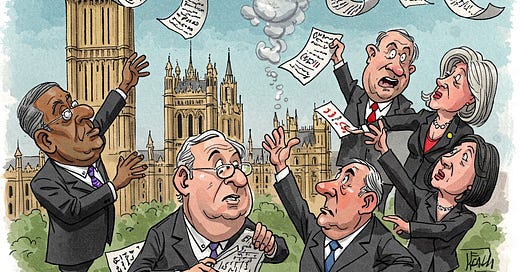
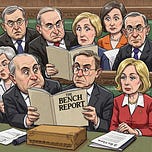

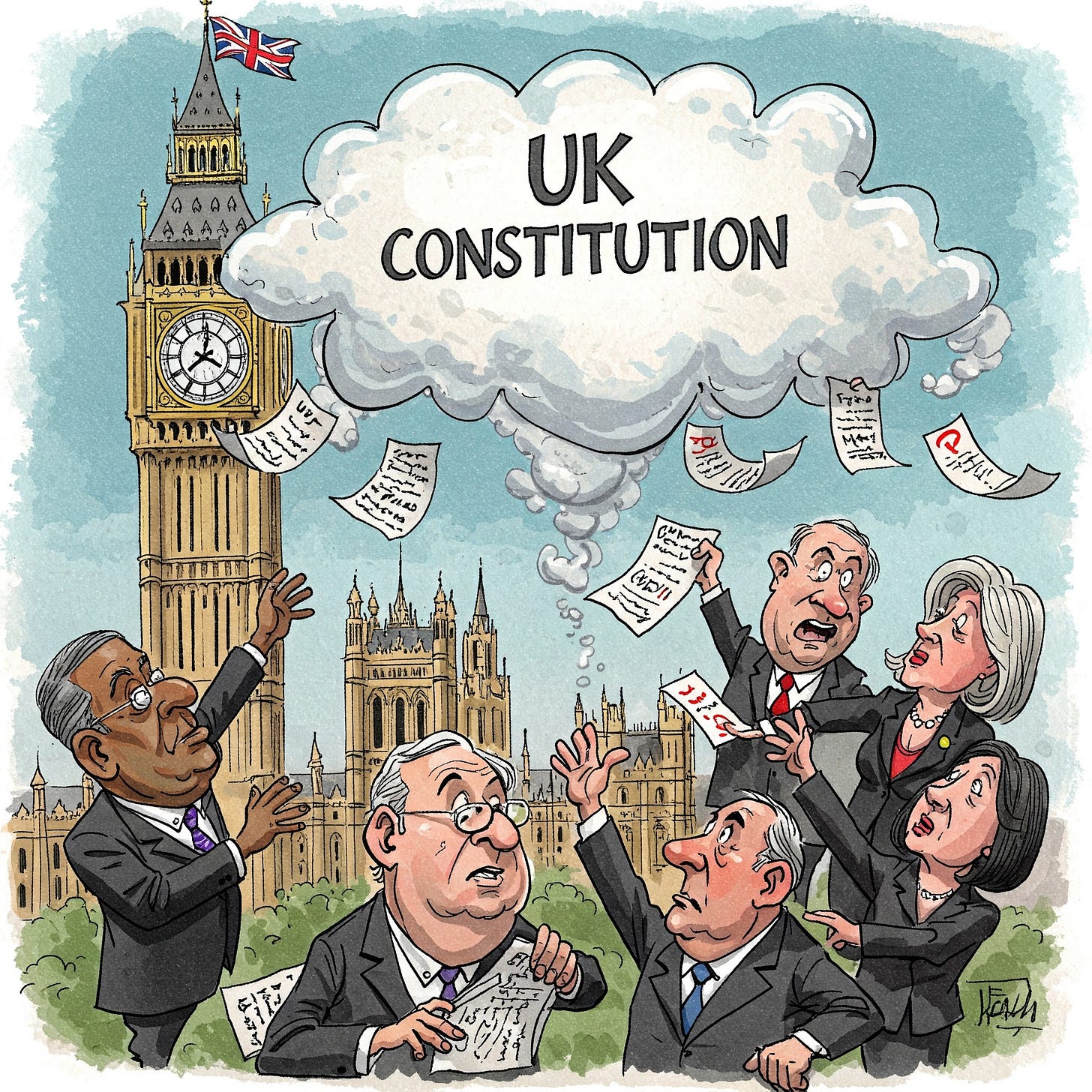
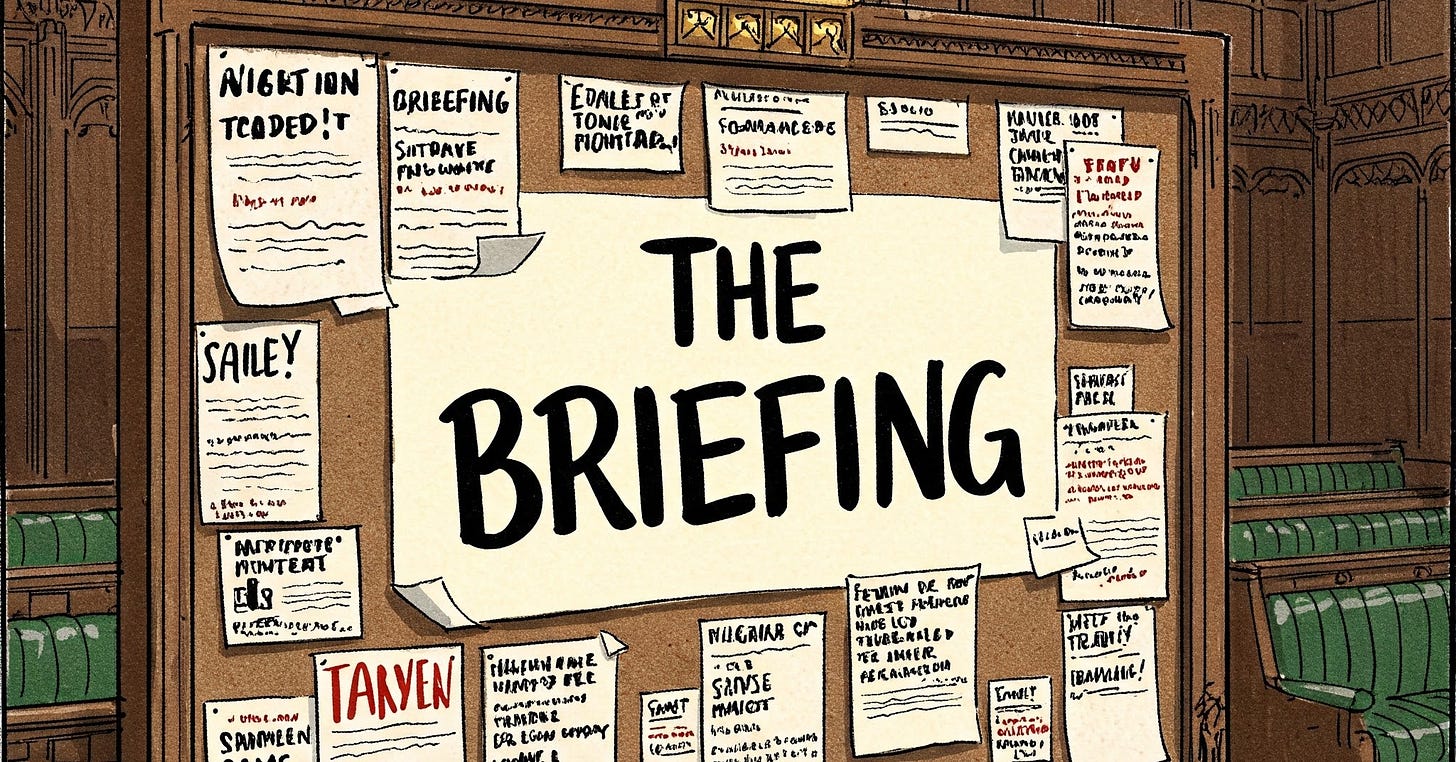
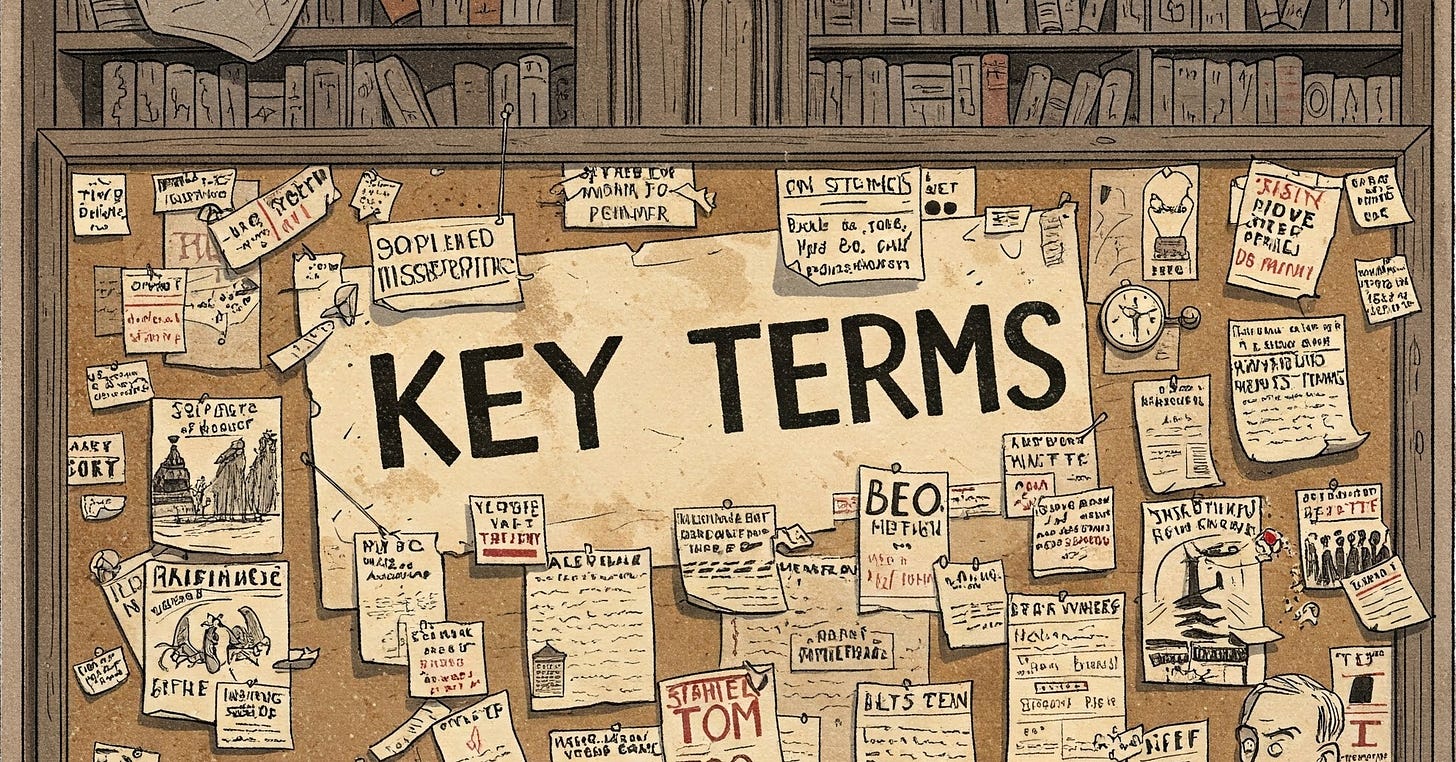

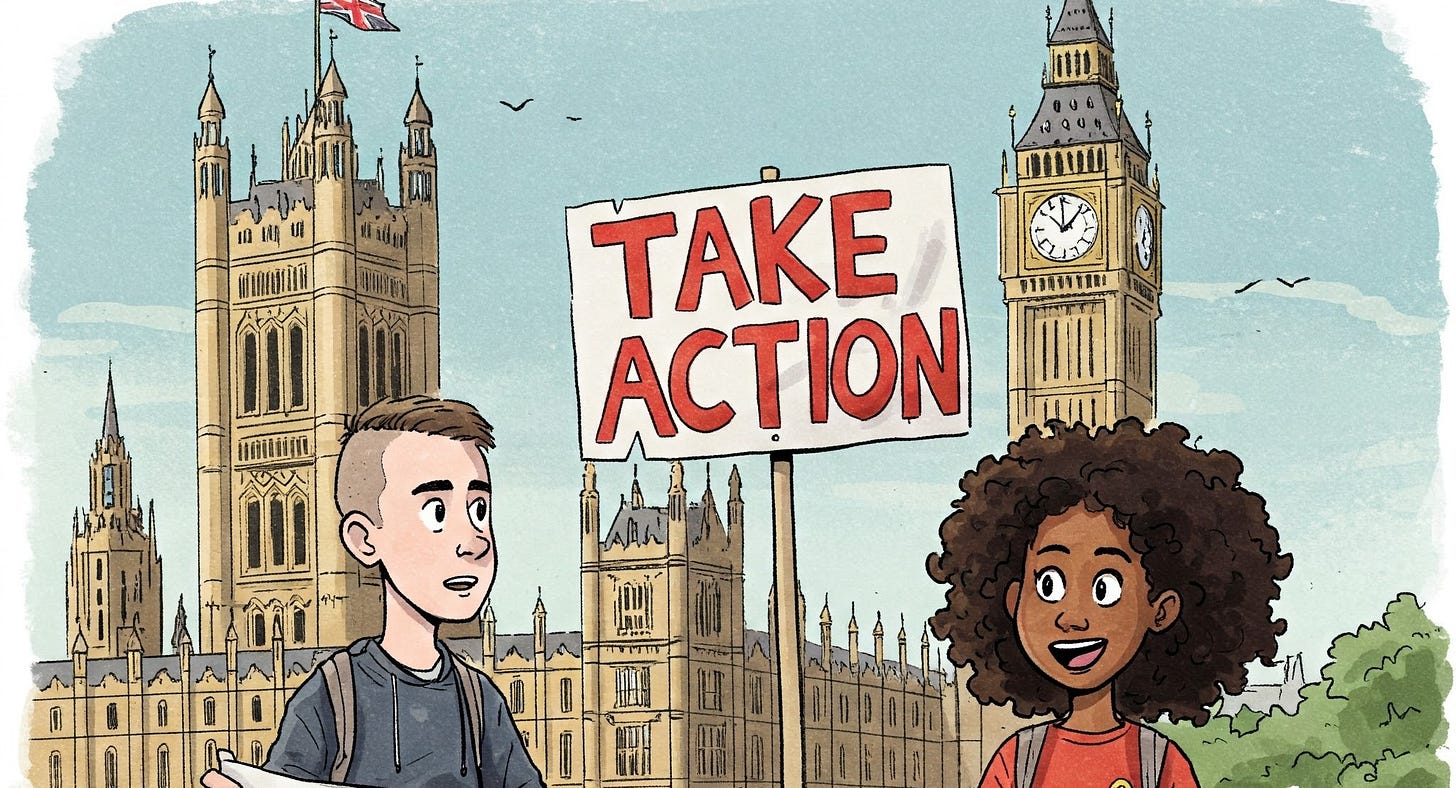

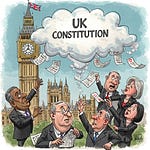






Share this post